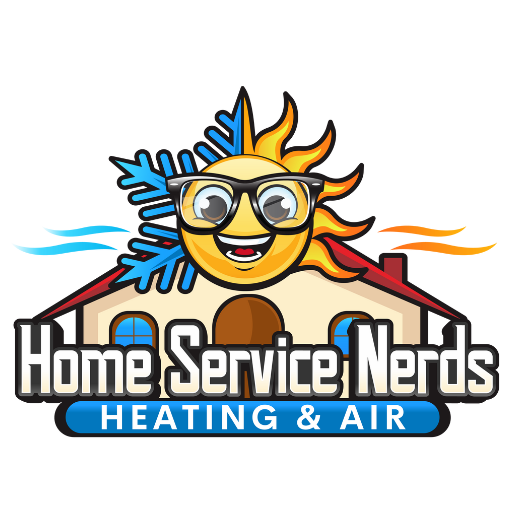
Maintenance is crucial for your heat pump to function at its peak and stay healthy over time. Ignoring routine maintenance chores may make it less efficient, increase your energy costs, or even break down. This is particularly true in the winter when you must fix your heat source. In this comprehensive guide, we examine which heat pump maintenance tasks should be completed first to ensure optimal performance throughout the year.
A Checklist For Maintaining Heat Pumps
Periodic Inspections:
The initial step in maintaining heat pumps is to do routine eye examinations at least once a month. Start by giving it a routine inspection to search for any evident damage or dirt accumulation that needs to be repaired.
Outdoor units with attenuators should routinely inspect their surroundings for any debris, such as branches or leaves, that could obstruct airflow and reduce efficiency. Impediments should be removed as soon as they appear to help prevent future issues with performance.
Additionally, you should listen for any odd noises, vibrations, or smells coming from the inside unit. These could indicate more significant issues that require immediate treatment or problems that require further study.
Clean or Replace Air Filters:
One of the easiest and most essential ways you can maintain the health of your heat pump is by regularly replacing or cleaning its air filters. Unclean filters may obstruct airflow, diminishing system performance and indoor air quality. We suggest inspecting, cleaning, or replacing them every one to three months, depending on usage frequency and weather. This simple procedure helps improve system efficiency while assuring maximum air movement for interior air cleansing.
Check Thermostat Settings:
Check that your thermostat temperature settings are suitable for heating mode, or consider investing in a programmable thermostat that allows you to tailor settings according to your lifestyle and save energy at once by fine-tuning its settings specifically for maximum comfort with minimum energy use or financial expenditure. By fine-tuning its optimal settings, you could achieve greater comfort at reduced financial and energy expenditure costs.
Inspect Ductwork:
Your system’s efficiency could take a severe hit if your pipe leaks or insulation is improper, leading to significant energy waste and savings losses. Periodically inspect the ductwork for leaks, gaps, detached sections, and leaky connections; seal off leaky ones using tape or adhesive such as mastic to ensure air stays inside for efficient heating/cooling in your house.
Home Service Nerds can assist in inspecting, cleaning, and sealing ducting. Proper sealing helps improve heat pump efficiency while maintaining consistent temperatures throughout your house.
Lubricate all moving components:
Maintaining friction-reducing and life-extending performance requires regular lubrication of heat pump motors and moving parts with appropriate oils or greases recommended by their manufacturers. Lubricate moving parts regularly according to manufacturer recommendations to maximize wear and tear prevention while optimizing system performance and preventing early system failure. Doing so will minimize wear and tear, achieve peak system performance, and prevent early system failure.
Clean the condenser and evaporator coils:
Evaporator and condenser coils may become covered in dirt over time, restricting heat flow and decreasing system performance. A soft brush or vacuum cleaner are good ways to safely clear away this buildup without harming delicate fins on either coil. Having professional cleaners perform this service once every year for more thorough service may also prove invaluable in optimizing heat pump operation efficiency.
Check Refrigerant Levels:
A proper gas supply is essential for heat pumps to function correctly. Excessive refrigerant volumes can cause the system to function poorly and inefficiently, while low amounts can indicate a leak or other issue underneath. Have a professional check the amount of refrigerant and recharge it as necessary to maintain the system operating at peak performance and efficiency.
Inspect Electrical Components:
Electrical connections or malfunctioning parts might reduce the safety and efficiency of your heat pump. Regularly inspect electrical connections for wear, corrosion, and damage. Tighten any loose connections as necessary. As soon as possible, replace any damaged cables or equipment to protect your heat pump from electrical hazards and ensure optimal operation.
Test Defrost Cycle:
During the colder months, it’s essential to ensure that the defrost cycle of your heat pump is functioning correctly. A malfunctioning defrost cycle can lead to ice buildup on the outdoor unit, reducing system efficiency and potentially causing damage. Test the defrost cycle periodically and schedule a professional inspection if you notice any issues or irregularities.
Trim Vegetation:
Maintain adequate clearance around the outdoor unit by trimming vegetation such as bushes, shrubs, and trees. Overgrown vegetation can obstruct airflow, hinder heat pump operation, and increase energy consumption. Keep the area surrounding the outdoor unit clear to ensure proper airflow and maximize system efficiency. Consider installing a protective barrier or fence around the unit to prevent damage from falling branches, debris, or wildlife.
Periodically inspect the outdoor unit for any signs of damage or deterioration, such as rust, corrosion, or bent fins, and address any issues promptly to stop further damage and ensure reliable operation.
Conclusion
Regular maintenance on a heat pump is the key to prolonging its lifespan and maximizing the performance of your heat pump. By adhering to this comprehensive heat pump maintenance checklist, you can prevent costly breakdowns, minimize energy costs, and ensure year-round comfort in your home. Invest in routine maintenance with a qualified HVAC technicians like Home Service Nerds to keep your heat pump operating smoothly and efficiently for years. Don’t overlook the importance of preventive maintenance – it’s the cornerstone of a reliable and efficient heating system.



